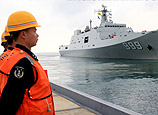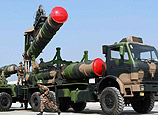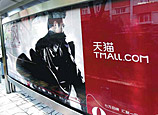
In recent years, a growing number of Chinese acquisitions in Europe have been across a diverse range of industries, including food, retail, manufacturing, education, clean technology, industrial technology and healthcare.
Shanghai-based Bright Food Group's purchase of a 60-percent stake in British cereal maker Weetabix in May last year helped the company gain a well-known and well-trusted British brand.
Chinese construction equipment maker Sany Heavy Industry and Chinese private equity company Citic's joint acquisition of Germany's largest concrete pump maker Putzmeister in January last year in a landmark deal allowed China to claim a pillar of German industry.
David Yin says Mindray Medical's success in the EU and US markets has helped it win trust elsewhere. [Photo / China Daily]
Bunse of Germany Trade and Invest says that for Chinese companies which are faced with industrial upgrading issues, investing in European countries like Germany can help overcome the problems.
"It is still a difficult process for Chinese companies to set up globally recognizable brands. They need support of both advanced management and technology, which we believe European countries like Germany can provide."
Many Chinese companies are expanding into Europe to build globally recognizable brands, as the European market has strict regulations especially for high-technology products.
Chinese medical equipment maker Mindray Medical is one such company testing the waters.
"We are committed to international expansion, especially in the US and Europe. These two markets are like two fortresses we have to conquer to become a truly global leader," says David Yin, managing director of Mindray's European operations.
"In the process of selling our products to Europe and the US, we learn about their strict standards. These lessons have become invaluable for product development at home."
Yin says Mindray's success in Europe and the US has helped it gain trust from domestic and customers in other emerging economies which had often favored Western products in the past.
"Some Middle Eastern and Latin American markets only give medical equipment product registrations if they have already been sold in Europe or the US, which just demonstrates how important it is to have a presence in Europe and the US," Yin says.
Challenges ahead
As with any companies entering a foreign market, challenges are inevitable for Chinese companies.
Cucino says the survey respondents cited operational problems, rather than market access, as the biggest obstacle for Chinese investment in Europe.




















![]()
